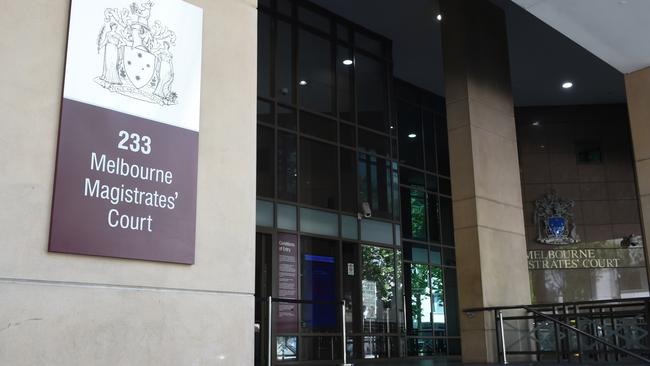Magistrate felt ‘trapped’ before taking her life, Coroners Court told
Magistrate Jacinta Dwyer complained of stress, anxiety and an inability to cope before taking her own life.

Police & Courts
Don't miss out on the headlines from Police & Courts. Followed categories will be added to My News.
A new magistrate felt “trapped and a failure” as she grappled with a mounting caseload before taking her own life.
Jacinta Dwyer — who became so overwhelmed she quit the bench after five months — complained of stress, anxiety and an inability to cope with her new role.
But the Coroners Court has stopped short of making recommendations just as it did in the case of fellow magistrate Stephen Myall who complained of job stress before taking his life in 2018.
Ms Dwyer was “slightly shocked” to preside over her first solo case just a fortnight into induction before the next week being allocated to the criminal mention list despite limited experience in criminal law and sentencing.
Ms Dwyer, who’d three years earlier returned to law at the Women’s Legal Service Victoria after raising her four children, confided to another newly-appointed magistrate she was “terrified” — a feeling made worse by her lack of proficiency in the court’s computer system.
The 50-year-old said she’d been assured she would be provided with all the time she needed to get on top of the criminal jurisdiction and wouldn’t be required to sit in a criminal list until she was ready.

An introduction to criminal law was eventually conducted as part of the induction program but by then Ms Dwyer had been allocated to the criminal mention list — which can include as many as 80 to 100 matters involving pleas of guilty for a wide cross section of offences.
Ms Dwyer had also felt she couldn’t do Children’s Court work because she was disturbed sentencing children the same age as her sons.
Ms Dwyer’s anxiety about the role eventually turned into misgivings as exhaustion from travelling to and from courts across the state, constant workloads and the pressure to get through large lists and long sitting times took its toll.
She took leave several times and despite repeated encouragement from the court to stay, resigned on July 26, 2017.
But her mental health continued to decline and she was later diagnosed with major depressive disorder — telling a psychiatrist she was battling with a darkness.
On October 21, 2017 Ms Dwyer dropped one of her boys off at sport before driving to the family’s Apollo Bay holiday home and taking her life.
Coroner Ian Guy in a finding published on Friday found changes to the induction and training of new appointees — most significantly that new appointees are now assigned to the jurisdiction in which they have experience or feel most comfortable — were both “timely and significant”.
He didn’t consider any meaningful recommendations could be made through the Coroners Court and found no missed opportunities in the new magistrates’ medical care.
Mr Guy paid tribute to Ms Dwyer — described by her “utterly devastated” family as a gracious, nurturing, loyal, funny, strong, and highly intelligent woman.
“Contrary to Ms Dwyer’s statements made to her family and health professionals at a time of significant ill health, it is clear she did not fail in any way. She applied herself to the role of magistrate with enthusiasm, dedication, and integrity,’’ Mr Guy noted.
“Ms Dwyer’s death also shocked the legal fraternity. In 2017, although the topic of judicial stress was known within the court system, it was rarely acknowledged in a meaningful fashion.
“Ms Dwyer’s death caused many within the Victorian courts at all levels and the wider legal community to pause, acknowledge the problem of judicial stress, and to turn their attention to address it in significant ways and to prioritise judicial wellbeing.”
For help with personal problems phone Lifeline on 13 11 14 or Beyond Blue on 1300 224 636.


